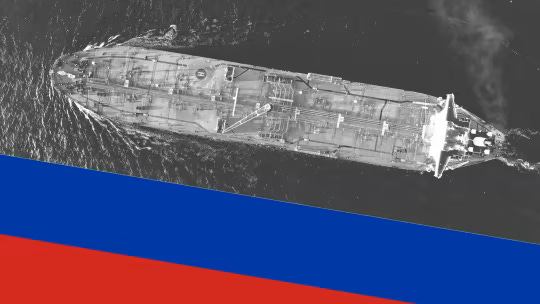Just yesterday, the EU and the G7 nations announced their mechanisms to cap Russian oil sales at $60 per barrel.
Now, information is surfacing to suggest that Russia has already found a workaround: use its own tankers.
Shipping broker Braemar estimates that Moscow, which relies heavily on foreign tankers to transport its crude, has added more than 100 ships this year, through direct or indirect purchases. Energy consultancy Rystad says Russia has added 103 tankers in 2022 through purchases and the reallocation of ships servicing Iran and Venezuela, two countries under western oil embargoes.
With sufficient shipping capacity, Russia could in theory moot the entirety of the EU price cap mechanism, which relies heavily on the need for cargo vessels to be heavily insured against just about every imaginable exigency.
The cap will ban Western companies from insuring, financing or shipping Russian oil unless the oil is sold below $60 a barrel. The U.S. and its allies designed the system in an attempt to cut into Moscow’s oil revenues while keeping Russian crude—an important part of global supply—available on the market. It aims to leverage the concentration of maritime services in the West to curb Moscow’s ability to wage war in Ukraine.
By using its own fleet—and presumably sidestepping EU maritime insurance providers such as Lloyd’s of London—Russia hopes to at least blunt the impact of the EU cap.
But Russia has long said it will not deal with any country enforcing the ceiling, a stance that means it may refuse to supply oil under the conditions set by the west.
Instead it aims to use its new fleet to try and supply countries like India, China and Turkey that have become bigger buyers of its oil as Europe has cut back.
However, the ships Russia is believed to have been buying are generally 12-15 years old and would normally be scrapped within the next few years. How much maintenance work Russia’s new tanker fleet will require remains to be seen, but it is not unreasonable to presume above average maintenance costs for vessels that close to the end of their normal operational life.
Additionally, while Russia may be able to avoid using European insurance companies and theus avoid some scrutiny by using its own fleet, Russia is not going to be able to avoid most of the insurance paperwork that is a part of the services liability carriers often provide. To transit the Suez Canal, there are a number of warranty certificates and declarations that are required by the Suez Canal Authority and the Egyptian government.
Regardless of whether Russia owns its own tanker fleet or not is not going to change the generic insurance requirements of such third party agencies. Even with its own tanker fleet find facilities such as the Suez Canal effectively blocked if the SCA opts to enforce the price cap via its own warranty (insurance) documentation regulations.
Moreover, as Russia has up to this point relied on non-Russian tankers to deliver its crude, Russia has not had to factor in the maintenance costs and upkeep of a full tanker fleet (some analysts believe Russia would need some 240 ships to be able fully ship all of its produced crude). Even without the costs of third-party insurance that might be incurred by foreign-owned vessels, Russia at a minimum must now add maintenance costs for the 100+ vessels it has purchased, along with any vessels it plans to purchase in the future.
How much those costs add up per barrel of shipped crude remains to be seen. It also remains to be seen how much actual insurance cost Russia can hope to evade this way; lack of proper insurance documentation could also bar Russian tankers from various ports on the usual shipping routes between Russia’s ports in the Baltic and Black Seas and Russia’s new primary customers in Asia (India and China), which in turn would add again to the overall shipping costs.
This much is almost certainly true: Russia is not saving any money by using its own tanker fleet. If such cost savings were available Russia—and other oil producing nations—would have long ago switched to domestic fleets for handling its export shipments. That Russia has relied on foreign vessels until now for oil shipments suggests that has been the least-cost approach.
Russia may be able to technically evade the oil cap by using its own tanker fleet, but the costs of doing so will consume a significant fraction of the marginal revenue Russia might achieve by evading the cap. In either scenario, Russia will have less money available to fund Putin’s war in Ukraine as a direct consequence of the EU oil cap.





"Russia is not saving any money by using its own tanker fleet. "
I wouldn't be so sure. I own a business. There are functions I outsource that I could do myself for less, but I don't, because I'd rather not be bothered handling all those details. Now if I were cut off from the vendors who are capable of doing those things for me, I'd find a way to do them myself, and it would probably cost me less.
But let's assume you're correct and that it costs more. How much more? $10/barrel? $20? If it's less than the spread between the $60 "cap" and the whatever Russia can sell the for in markets that aren't abiding by the cap, then using her own fleet of ships would still be net win for Russia, no?